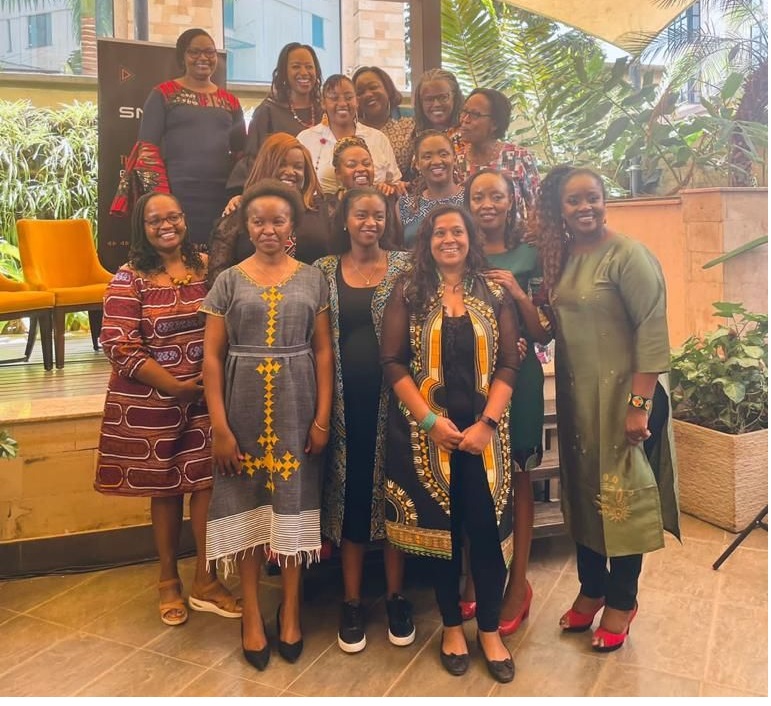
Women’s Month: Kenya strives to embrace equity

By Linda Apollo
This year’s theme, “Embracing Equity”, was a call to action for individuals and organizations around the world to work towards gender equity in all aspects of life.
In Kenya, many companies are taking strides toward embracing equity in the workplace by not only creating a more inclusive and supportive work environment for women but also helping to close the gender gap in the workplace.
Safaricom PLC, one of Kenya’s largest telecommunication companies, through its “Women in Leadership” program, aims to identify and develop female talent within the company.
This program provides training and mentorship opportunities to women in various departments, helping them to advance their careers and take on leadership roles.
Like Safaricom, Kenya Commercial Bank Group (KCB), a leading financial services provider in the country, through its Women in the Leadership program, also provides mentorship and leadership training to its female employees.
Additionally, KCB Group has set aside Ksh 250 billion to fund women entrepreneurs in the next five years through their Female-led and Made Enterprises (FLME). The bank will extend the funding to women-led and women-owned Small and Medium Enterprises (SMEs) across the county.
“They face a lot of obstacles, like limited access to credit facilities, labor and skill gaps, exclusion from key networks, as well as social and legal constraints,” Russo added.
Coca-Cola too has implemented the Women’s Economic Empowerment program, a number of programs to promote gender equity, which provides training and support to female entrepreneurs.
In an effort to advance gender equality within the aviation sector, Kenya Airways has introduced the Women in Aviation program which endeavors to enhance female representation in leadership positions.
For instance, the 25by2025 is a voluntary commitment launched in 2019 that seeks to increase the number of senior positions held by women and in underrepresented areas by 25 percent or up to a minimum of 25 percent by 2025.
Digital technology has revolutionized the way women live and work in Kenya. Over the past decade, the country has made significant progress in bridging the gender gap in access to technology. Women are increasingly using digital technology to start and grow their businesses, access education, and healthcare, and connect with their communities.
This year’s International Women’s Day celebrations focused on the role of digital technology in empowering women and promoting gender equality. The celebration was marked by a series of events and activities aimed at highlighting the importance of digital technology in women’s lives.
The Women’s Digital Innovation Forum brought together women entrepreneurs, tech experts, policymakers, and other stakeholders to discuss the challenges and opportunities facing women in the digital economy.
The forum provided a platform for women to showcase their innovative digital solutions to address gender inequalities in various sectors.
“Promoting gender equality is not only a moral imperative but also an economic necessity for achieving sustainable growth and development,” Monica Kanda Talai, Business Development Executive at WYLDE International, a business consulting firm that works closely with female entrepreneurs, echoed this during the Women of SNDBX event held at Art Caffe, 14 Riverside Drive Nairobi.
By empowering women to participate fully in all aspects of society and the economy, Talai believes “we can unlock their potential, drive innovation, and create more inclusive and resilient communities.”
She advises that people “work towards eliminating gender-based barriers and biases, providing equal opportunities and resources, and fostering a culture of respect and support for women’s rights and achievements.”
over 140 women had the opportunity to network during the event and engage in inspiring and transformative conversations on embracing equality.
Women in Kenya are still significantly underrepresented in leadership positions. According to a recent report by the Kenya Institute for Public Policy Research and Analysis, women hold only 21 percent of board seats in listed companies in the country. This disparity is particularly pronounced in the technology sector, where women hold only ten percent of technical roles.
While there is still much work to be done to achieve gender equity in the workplace in Kenya, the strides that have been made in recent years are significant. The country has made progress towards achieving gender parity in education, with nearly equal numbers of girls and boys enrolled in primary and secondary schools. Additionally, the government has implemented policies and programs to promote gender equity, including the Gender Equality and Women’s Empowerment policy and the National Gender and Equality Commission.
“Chances and opportunities (should) be given to anyone who is qualified for a position irrespective of gender. This includes even gender-diverse people,” Njeri Kimani, the CEO of Art 4 Rights told The Insider South Sudan.
However, there is still much work to be done to close the gender gap in the workplace. Women continue to be underrepresented in leadership positions, and many face barriers to career advancement due to discrimination and bias.
Additionally, women are often paid less than men for doing the same work and are more likely to work in low-paying industries. Research shows women in Kenya earn 32 percent less than their male counterparts compared to the 23 percent global average.
“Gender equality is a fundamental human right and is a necessary condition for achieving sustainable development goals and peaceful coexistence,” Kimani emphasized.
it is important for companies to implement policies and programs that promote diversity and inclusion in order to achieve gender equity in the workplace. This includes measures such as equal pay for equal work, flexible work arrangements, mentorship and leadership development programs for women, and gender-sensitive recruitment and hiring practices. Companies must work to address unconscious bias and discrimination in the workplace and create a culture of respect and inclusivity for all employees.






















Recent Comments